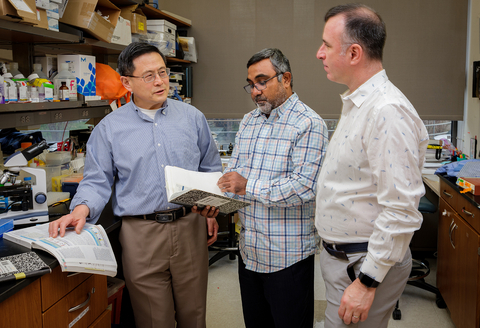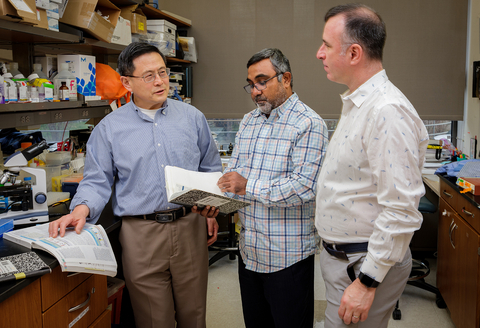MANHASSET, N.Y.--(BUSINESS WIRE)--Sepsis affects at least 1.7 million Americans annually, causing the death of 270,000 patients and 30 percent of all hospital deaths. To better understand the molecular mechanisms of sepsis to develop treatments, The Feinstein Institutes for Medical Research has been awarded a five-year, $2.5 million grant from the National Institutes of Health (NIH).
Sepsis occurs when the body’s immune system triggers inflammation in the body to help fight infection. However, this can cause damage to multiple organ systems, leading them to fail. Building off a previously awarded Maximizing Investigators' Research Award (MIRA) NIH grant, the research led by Ping Wang, MD, professor and chief scientific officer at the Feinstein Institutes, will further investigate extracellular cold inducible RNA-binding protein (eCIRP), which the team discovered as a new damage-associated molecular pattern molecule released in sepsis. The team will look at how neutrophils, a type of white blood cell that helps the body fight infection, and how it interacts with eCIRP.
“There is no standard of care therapies to prevent or treat sepsis and septic shock, an unfortunate complication that leads to unnecessary death,” said Dr. Wang. “With the continued support of the NIH we will be able to discover further the underlying mechanisms that trigger sepsis that may ultimately lead to new drugs and treatment.”
The MIRA grants provide investigators with greater stability and flexibility in their research, enhancing scientific productivity and the chances for significant breakthroughs. Dr. Wang and Kevin J. Tracey, MD, president and CEO of the Feinstein Institutes, were each awarded a MIRA grant in 2016. Dr. Wang’s received $2.4 million, which helped set the groundwork for this continued research.
“Low levels of inflammation are a crucial part of the body’s immune response, but too much of it can cause sepsis leading to widespread damage in the lungs, kidneys and others organs,” said Dr. Tracey. “Dr. Wang’s research, with support from the NIH, will allow us to better understand exactly what can initiate dangerous inflammation and how to treat the condition."
The Feinstein Institutes continues to lead in sepsis and septic shock research. Most recently, Haichao Wang, PhD, earned the Shock Society’s 2021 Scientific Achievement Award. Dr. Ping Wang received the same recognition in 2019.
About the Feinstein Institutes
The Feinstein Institutes for Medical Research is the home of the research institutes of Northwell Health, the largest health care provider and private employer in New York State. Encompassing 50 research labs, 3,000 clinical research studies and 5,000 researchers and staff, the Feinstein Institutes raises the standard of medical innovation through its five institutes of behavioral science, bioelectronic medicine, cancer, health system science, and molecular medicine. We make breakthroughs in genetics, oncology, brain research, mental health, autoimmunity, and are the global scientific leader in bioelectronic medicine – a new field of science that has the potential to revolutionize medicine. For more information about how we produce knowledge to cure disease, visit http://feinstein.northwell.edu and follow us on LinkedIn.




